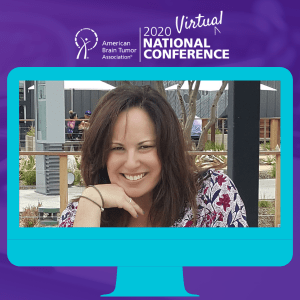by Bethsabe Gonzales
Last year, life threw my family a challenge we never expected. I became a caregiver for both my mom and sister, after they underwent brain surgeries just a week apart. It was an incredibly difficult time, but also one that taught me about strength, love, and resilience.
The Diagnosis: Two Brain Tumors in One Family
It all started in February of 2023 when my mom was diagnosed with not just one, but two brain tumors: a meningioma and a pituitary tumor. We were referred to USC where we met with neurosurgeon Dr. Gabriel Zada and his amazing team. They confirmed the diagnosis, and we scheduled her surgery for June 2023.
As a family, we had never imagined dealing with something like this, but we came together to support one another. On June 22, 2023, my mom underwent surgery to remove her pituitary tumor. Thankfully, the surgery was successful, and her recovery was so smooth that it was almost as if she hadn’t had surgery at all.
Another Shock: My Sister’s Diagnosis
Just three days later, while I was at Keck Hospital with my mom, I received shocking news: my sister had a tumor in the back of her brain. The doctors planned to operate the next day but decided she should be transferred to a hospital in Los Angeles for specialized care.
We were relieved when my sister was transferred to Keck Medicine of USC, where Dr. Zada and his team would be caring for her, just as they had for my mom. It was reassuring to know that the same skilled hands would take care of my sister.
Becoming a Caregiver for Both
In those two days, I quickly realized that I wasn’t just a caregiver for my mom—I was now responsible for my sister too. It was a heavy burden, but I knew I had to step up. I had to ensure that both my mom and sister received the care they needed during this critical time.
One of the hardest challenges was figuring out how to tell my mom about my sister’s condition without disrupting her own recovery. Fortunately, when I finally shared the news, she took it with grace, comforted by the fact that Dr. Zada, the same surgeon who had helped her, would be treating her daughter.
My Sister’s Surgery: A Different Path
A couple of days after the transfer, my sister was under Dr. Zada’s care at Keck Medicine of USC. After further testing, we received a bit of good news: her diagnosis wasn’t a tumor, but a cerebellar cyst.
Eight days later, she underwent surgery. While her recovery took a bit longer than my mom’s, it was still a success. Four months post-surgery, my sister was back at work, a true testament to her strength and the excellent care she received.
A Life-Changing Experience
These experiences changed our lives forever. My family and I are incredibly grateful to Dr. Zada and his team, not only for the care they provided my mom but for stepping up to take care of my sister as well. Their skill and compassion made all the difference in these challenging times.
We are also deeply thankful for the support we received from family and friends. Their love and encouragement helped us get through one of the toughest periods of our lives.
Conclusion
Being a caregiver for both my mom and sister during their brain surgeries was a challenging yet deeply transformative experience. I learned the importance of being strong for the people you love and making sure they get the best care possible. While this journey changed us forever, it also taught us to appreciate the small victories and the incredible support from loved ones.




















